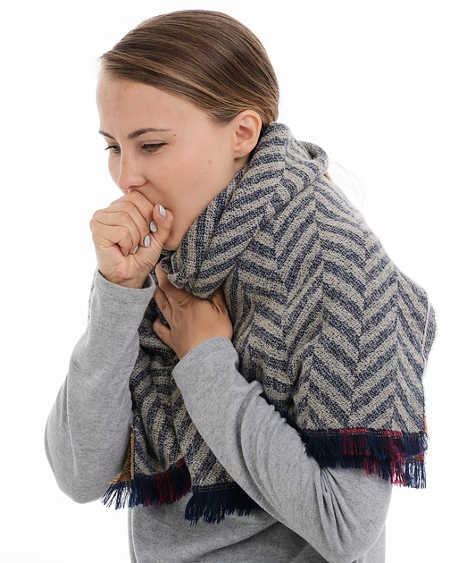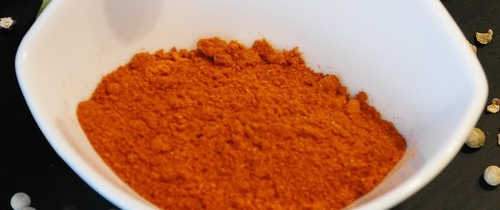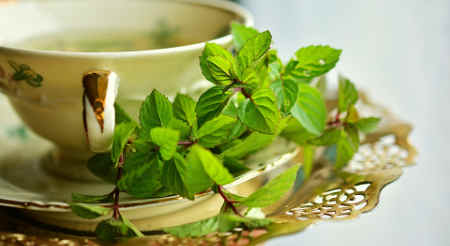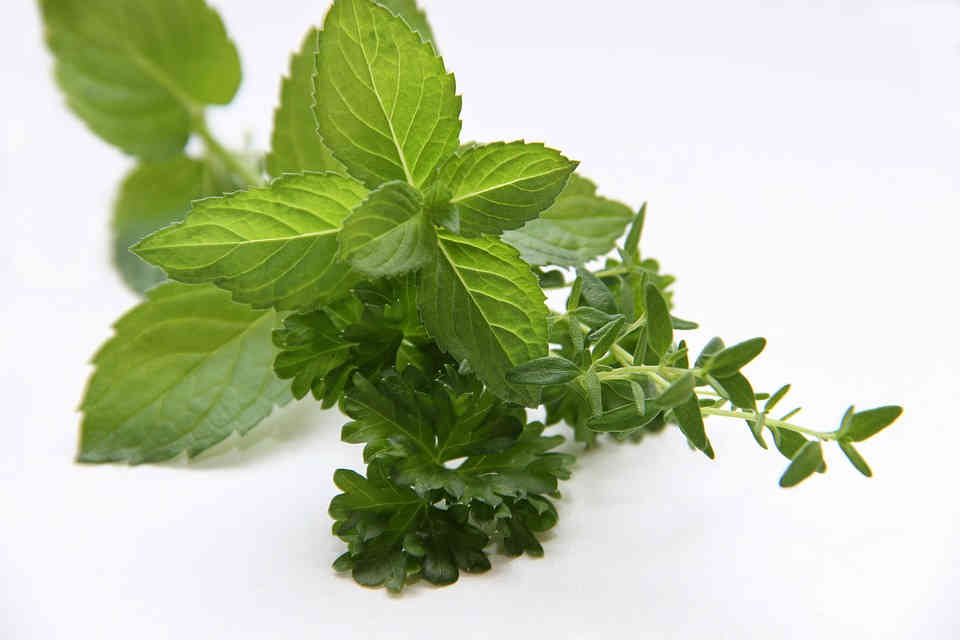Cough can be uncomfortable and annoying but in many instances, it will clear up on its own. Dry cough or cough with phlegm, surely you want to get rid of it fast because a persistent cough can ruin a good night’s sleep. Coughing during the day not only bothers you but can be annoying people around you. Does homemade cough remedies sound good to you? Read on to find the best herbs for cough.
Before proceeding to the remedies, you may want to know
Why Do You Cough

A cough is supposed to protect you. Coughing is a way your body get rid of foreign particles, irritants, microbes, mucus and bacteria among other allergens from the throat.
By coughing, the air is forced out of your lungs under high pressure, attempting to clear the throat of these foreign particles.
Dry Cough vs Chesty Cough
There are two types of cough – a dry cough which is itchy and a chesty cough also called a productive cough because it generates phlegm.
Dry cough
This is a condition where you are unable to remove mucus, phlegm or irritants from your lungs or nasal passages. And it can linger for weeks after you have had a cold or the flu.
It may also be caused by various circumstances such as
Asthma and allergies. For people who have asthma or allergic, inhaling irritants such as mould can cause an overreaction in the lungs triggering a cough. The lungs try to get rid of foreign substances by forcing a cough. A chronic dry cough could be a sign of mild asthma.
Acid reflux or GERD. This reason for a cough is often overlooked. GERD occurs following a rise of hydrochloric acid in the stomach up the oesophagus causing irritation of larynx and oesophagus and triggering a cough. It can be quite persistent and may be accompanied by a lack of sleep.
Environmental factors. Exposure to environmental irritants such as pollen, dust, particulate matter, chemicals and pet dander can cause cough.
Chesty cough
This occurs when a person coughs up mucus or phlegm. It is typically due to an infection such as the flu, common cold or a chest infection. The acute chesty cough usually lasts less than three weeks but chronic can last longer than 8 weeks.
Chronic chest coughs may be due to
Postnasal drip. This happens when your nasal passage is congested. Mucus drips down the throat and prevents breathing, initiating a cough. Postnasal drip is often a symptom of colds, sinus infections, flu and allergies.
Pneumonia. This is when a bacterial infection causes the tissue on the lungs to become inflamed.
Bronchiectasis. A condition resulting from the mucus pools in small pouches in the lungs that the body is unable to clear.
Non-tuberculous mycobacterial infection. This is noncontagious and can be accompanied by tiredness, feeling unwell and weight loss.
Chronic obstructive pulmonary disease (COPD). This is a type of lung disease where common symptoms may include shortness of breath and wheezing.
Homemade Cough Remedies
As it can last for weeks, a few days into it, you may want to get rid of a cough fast. There are several natural remedies you can quickly and easily make at home. While it may not eliminate cough completely, at least, quick relief is good enough. And the ingredients used are probably in your kitchen now.
Relieve Cough Naturally with Spices

#1. Turmeric contains curcumin, a compound which has anti-inflammatory, antibacterial and antiviral properties. Hence, beneficial for several health conditions including cough.
In Ayurvedic medicine, turmeric is a well-documented treatment for various respiratory conditions such as the runny nose, cough, asthma, bronchial hyperactivity and allergy.
You need to know that curcumin is best absorbed when taken with black pepper.
Make simple turmeric tea by simmering (not boil) 3 cups of filtered water on medium heat with ½ teaspoon turmeric powder and a pinch of ground black pepper for 3- 5 minutes. Add lemon juice and honey to taste.
Besides the medicinal properties of turmeric, a cup of warm turmeric tea itself will be good to soothe the tickling dry cough before sleep. Do you agree?
On top of teas, use turmeric to flavour a rice dish as in herb rice or butter rice. Also, use it to season meat. Pairs perfectly with chicken and fish which I usually do, and my kids love it.
Related read:

#2. Ginger is well-known for its antibacterial and anti-inflammatory properties. Also, it helps to boost your immune system.
Its anti-inflammatory compound may help ease a dry cough, relaxing membranes in the airways.
You can easily make your own ginger tea by adding 20 – 40g of fresh ginger slices to a cup of hot water. Steep for 5 – 10 minutes before drinking. Add honey or lemon to taste and further soothe a cough. In fact, you may consider adding a few slices of fresh ginger to the turmeric tea mentioned above.
In cooking, add fresh ginger slices to stir-fries. Also, when brining to get juicy and tender chicken meat, add ginger together with other herbs and spices.
Learn more about brining here.

#3. Cinnamon is one of the oldest spices. It was used by Egyptians 2500 years ago for embalming.
While cinnamon has several compounds with anti-inflammatory properties, its flavonoid compound alone is very effective at fighting inflammation levels throughout the body. This may help ease a dry cough.
Traditionally, cinnamon is also regarded as a warming expectorant, used to reduce phlegm in your lungs.
Combined with honey, it gives your immune system a boost. And, adding a cinnamon stick to your ginger tea (method mentioned above) increases its potency. How about a ginger cinnamon tea with honey before bedtime? You tell me in the comments section below.
Sprinkling ground cinnamon to my cup of coffee in my morning routine. You should try it but NOT when you are having a cough. Avoid coffee during this time as caffeinated drinks are diuretics that tend to dehydrate your body. In this case, leads to much thicker mucus encouraging productive cough.
Other ways to include cinnamon in your diet is adding to your morning oatmeal, yoghurt, pancakes or waffles.
Are you buying true cinnamon (Ceylon)? Find out the difference between Cassia and Ceylon here.
#4. Cayenne pepper contains a component called capsaicin which may act as an expectorant, making it easier to expel phlegm in your lungs. Furthermore, pepper is known to increase blood circulation thus helps clear out mucus from the sinus and nasal passages.

Cayenne pepper can be spicy hot, use sparingly to spice up your soup or broth. Also, simply sprinkle over eggs, vegetables or rice dishes.
Make you own homemade cough remedy (from barefeetinthekitchen) using the following ingredients.
- ¼ teaspoon cayenne pepper
- ¼ teaspoon ground ginger
- 2 tablespoons apple cider vinegar
- 2 tablespoons raw honey
- 2 tablespoons water
Place all ingredients in a clean and dry jar, and shake to combine. Leave at room temperature for a few days before storing in the refrigerator for longer storage.
Always remember to shake well before consuming as the spices will not dissolve into the liquid. One tablespoon when needed.
Note that this cough remedy should remain watery. It is not a thick syrup as with most over the counter cough syrup.
Best Herbs for Cough
#5 Peppermint contains menthol which helps to numb nerve endings in your throat. This may provide pain relief thus reduce the urge to cough. Furthermore, its anti-inflammatory, antibacterial and antiviral properties have direct activity on the coughing reflex and the airflow in the nasal tract, reducing congestion and cough.
You may benefit from drinking peppermint tea or by inhaling vapours from a steam bowl.

Make a calming cup of peppermint tea by steeping a few sprigs of peppermint or 2 tablespoons of leaves to two cups of hot water. Allow to steep for at least 5 minutes before drinking. Alternatively, you can always buy peppermint tea online.
If you are having a chest cough, inhaling vapours may be a better option as it helps break down the mucus.
Make peppermint steam by pouring just-boiled water over a handful of peppermint leaves in a bowl. Put a towel over your head and place your face just above the bowl. Breathe in the rising steam through your nose. Make the temperature as warm as you can but be CAREFUL, NOT burning yourself. Stay in the steam for up to 10 minutes. If the steam is too hot, discontinue until the skin cools down before continuing. This herbal steam is NOT recommended for children or pregnant women.
Related read:

#6 Thyme is another herb that is beneficial for cough. It is rich in volatile oils containing thymol which is antimicrobial against many different types of bacteria including those related to upper respiratory infections. This contributes to thyme’s expectorant, anti-spasmodic, bronchodilation and diaphoretic qualities.
On top of that, the leaves contain flavonoids, a compound that helps relax the throat muscles involved in coughing and lessen inflammation.
Make thyme tea by pouring 1 cup hot water over 1 teaspoon of dried thyme or 2 teaspoons of fresh leaves. Steep for 10 minutes before straining and drink. You may add honey or lemon juice to taste. Note: Pregnant individuals should only use thyme in culinary amounts.
Up your Fluid Intake
Staying hydrated is vital when you are unwell. Coughing can cause dryness and will only lead to increased throat irritation which you do not want.
Drink more water to keep your throat and airways moist. Water is boring? I agree.
Besides plain water and making your own herbal teas with the kitchen herbs and spices mentioned above, you can alternate these with
- Clear broth and soups
- Honey lemon water
- Decaffeinated black tea
Last but not least, gargling with salt water helps ease your throat that is sore from coughing. Allow the saltwater to sit at the back of your throat before spitting out. It is best to do this after meals and before bedtime.
Related read:
When at Work
While we can do all the above at home, how to get rid of a cough fast when you are at work? I have been through this. The tickling cough just would not stop, annoying me and colleagues. Not to mention the discomfort and pain while coughing.
Best to carry some cough lozenges with you at these times. Sucking on lozenge helps saliva production to keep your throat moist and the ingredients help relieve a tickling cough. Try to find lozenges with ingredients such as menthol or eucalyptus. They help cool the airway passages and soothe the throat.
When to See a Doctor
A cough may seem minor, but if you do not know the cause of it and not getting any better after a week, see your GP. Especially if it is persistent and interferes with your daily life, ability to work or preventing you from getting a good night’s rest. Also, if it comes with any of these symptoms:
- Chest pain
- Trouble breathing
- Trouble sleeping
- Ongoing heartburn
- Coughing up blood
- Fever and night sweats
Remember, do not attempt to self-diagnose. See a qualified GP for proper consultation and treatment.
These Gadgets May Help Further
Humidifier
In addition to the home remedies for cough, the use of a humidifier may help.
Dry air can aggravate a dry cough. As humidifiers put out moisture into the air, it can provide relief.
However, you must take proper care of the unit. The water supply must be kept thoroughly clean, or there is a risk of spreading bacteria or mould into the air thus aggravating your condition.
Should your home has dry air, run a humidifier in your bedroom to help reduce dry cough during bedtime.
Check out this list of best humidifiers for home use. It explains how it helps with coughing and why it may not be suitable for certain people, and tips on choosing your home humidifier.
Air Purifier
Using an air purifier can help clear your home of airborne irritants, for instance, dust and smoke, and other allergens. It reduces particles in your home as it cycles the air through the multi-layer filtration system.
Breathing in clean air can help reduce throat irritation thus the urge to cough.
Consider a Journey into Herbalism
If you have been using cooking herbs and spices to make remedies for common ailments at home, why not consider starting a journey into herbalism.
Not only will you learn how to make natural herbal remedies, but be educated about the many ways herbs can be used to support wellness.
Learning herbalism is not only for those who wish to pursue a career as a herbalist. It is for anyone who wishes to take the natural path to support their own, as well as their family’s general health.
The Family Herbalist Path Course from The Herbal Academy is an online program where you can learn from the comfort of your home. This package, at a special discount, includes the Introductory and Intermediate Herbal Courses.
Explore The Herbal Academy yourself or
Preview Lesson from the Introductory Herbal CourseGood News! The Holiday Sale in on. All programs are discounted up to A Jolly 25% off.
Take a look ↓

All in All
The most common cause of a cough is a respiratory tract infection such as a cold or flu, which are usually caused by a virus. This may last a few days to a week.
Occasional coughing is normal as it helps clear your throat and airways of germs, mucus and other allergens.
Coughing actually protects you! However, it can be uncomfortable and all you want is to get rid of a cough fast. While you cannot rid of it instantly, there are homemade cough remedies that will give you almost immediate relief.
Your kitchen spices and herbs are within reach. Use them to make simple tea remedies to soothe your throat. All the spices and herbs mentioned above contains medicinal properties that help relieve your cough.
Should you need to stock up your spices and herbs, consider buying online direct from Starwest Botanicals.

Besides the remedies, always keep yourself hydrated and if need to, on your humidifier or air purifier for quality air.
Most importantly, consult a doctor if your coughing prolongs or you are not certain the cause of it. Don’t be stubborn, go see a doctor to be properly diagnosed. I can be stubborn too 😉
You need to understand that not all remedies work for everyone. Each individual’s body reacts differently thus what works for others may not work for you. Since all these are natural remedies, try them and if one does not gives you any relief, try another. Should you have any side effects, stop immediately.
I need you to know that I am not a doctor or medical professional, and this article should not be taken as medical advice. I love using herbs and spices and do my own findings on how to utilize kitchen herbs for health besides cooking.
Before You Leave, Please Comment & Share This Article
How do you feel about using spices and herbs for your cough? Will you try or have you tried before? Please share with us your recipe for cough if you have one or two. Let’s share and learn together.
If you find this blog post interesting, please share it with anyone that you think might find it useful. Thank you and have a beautiful day!
From the Corner of My Home – Spice Up Your Life with Herbs and Spices
Disclaimer: I am not a doctor or medical professional, and this post should not be taken as medical advice. Please do your own research. Material on this blog is provided for informational purposes only. It is general information that may not apply to you as an individual and is not a substitute for your own doctor’s medical care or advice.
Disclosure: This blog post may contain affiliate links as part of the Amazon.com Services LLC Associate Programs and other affiliate services. This means that cornerofmyhome.com receives a small commission by linking to amazon.com and other sites at no extra cost to the readers.



Hi Sharon!
Nice Post!
I usually use cinnamon sticks with honey in the evening to help with my immune system and lose weight too. I never knew that I could mix it with ginger, so this is a great find for me because I am out of turmeric.
I love natural remedies because they are simple and effective and I think that being also in the right environment can help get results faster. So, I completely agree that if you use an air purifier you may be less neckline to get a cough or be in a better position to heal faster from it. I always make sure to use an air purifier to stay clean.
Thanks
Thanks for sharing and commenting, Adyns.
Both cinnamon and turmeric are my favourites spice. Besides giving us wonderful flavours, they help us therapeutically.
Stay healthy!
Sharon
Hi Sharon, I love home remedies as I think they are so much better for us than the pharmaceutical driven prescribed cough mixtures. I amfamiliar with ginger and tumeric to be very good for being an anti-inflammatory and boosting the immune system, but I did not realise that it could also be used for coughs. And the same goes for cinnamon.
I greatly believe in the power of gargling with salt as soon as you feel a bit of pain in your throat. This is something that my mother told us as kids, and I still use it on a regular basis. Thank you for a very informative and useful article, Liné
You are most welcome, Liné.
Gargling with salt water is one of the most basic remedies passed down from one generation to another. I learned this from my grandmama.
Good day!
Sharon
Hi Sharon,
I am very happy whenever I see something about natural home remedies. It reminds us that the spices and herbs in our cupboards could bring relief, (cheap and natural).
Your suggestion regarding Thyme is spot on. I use it quite often as I get a bit chesty in the mornings because of my intolerance to dairy, (it increases the mucus).
I’ll keep reading your articles as they are informative.
Keti
Hi Keti,
Thanks for dropping by and taking the time to comment.
Waste not, the amazing herbs and spices Mother Nature brings. Besides flavours, there are many usages which help keep our general well-being in check.
Drop by here occasionally for more articles to come.
Regards,
Sharon